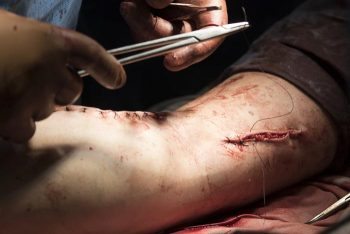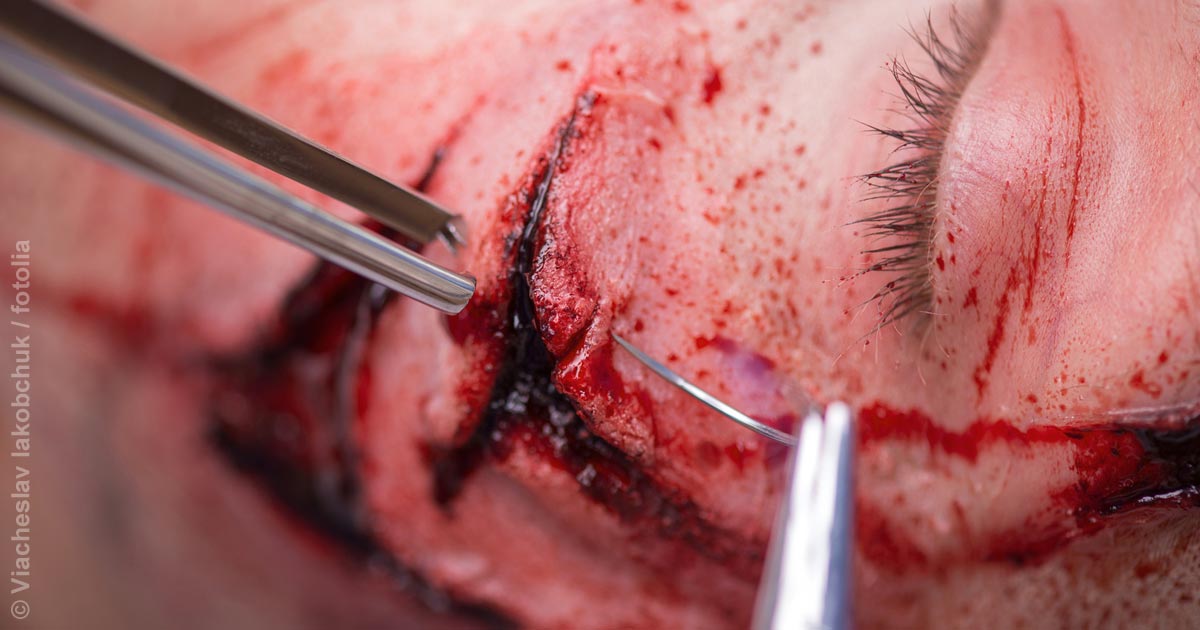Legality within the veterinary profession can be a bit of a minefield, especially when it comes to things like drug licensing. This leaves many new graduates in fear of doing something against the law without even realising.
However, while some veterinary legal principles are complicated but clear, others are genuinely vague, leaving us unsure on where we would stand in a court of law.
A stab in the dark
It was recently reported that stab victims, scared of the inevitable police involvement if they were to present at A&E, were turning to vets to have their wounds sutured, albeit at a handsome price of about £200. While the morality of doing a procedure such as suturing on people may be questionable, the legality certainly is.
 The RCVS clearly states vets are not legally allowed to prescribe pharmaceutical products for people, but they have no specific guidelines on wound treatment.
The RCVS clearly states vets are not legally allowed to prescribe pharmaceutical products for people, but they have no specific guidelines on wound treatment.
It could be argued that, ethically, suturing should involve the use of some form of local anaesthetic (either by a local block or a transcutaneous patch) and, therefore, cannot be allowed as this would involve drug administration.
However, that’s not to say a person can’t consent to old fashioned gritting their teeth and bearing temporary pain for the sake of saving a four-hour wait in A&E.
Friend or foe?
For those who could be potentially incriminated if they sought medical help at a hospital, you can sort of understand why they’d ask someone else, like a vet, for stitches. But they aren’t alone…
A number of vets who become injured either on the job, or elsewhere, will seek the help of their colleagues, rather than take the majority of a day off to wait for the NHS to achieve a vastly similar result. After all, vets are pretty damn good at suturing and would arguably do a better job than the junior doctor on an emergency ward.
You could discuss the ethics of whether a vet should help someone who needs medical attention in varying situations and whether they are legally allowed to do so. However, charging for the service is an altogether different matter – stitching up a fellow vet, or even a family member, wouldn’t raise the question of fees, but a stranger who walks in off the street?
Cash in hand
A BBC article from 3 March (Stab victims ‘paying vets to stitch up their wounds’) reported the “going rate” to be around £200 – does this not infer the image of an underground medical procedure market, whereby vets can earn a bit of extra cash to extend their services to animals of the two-legged kind?
You have to admit, when you consider the rough cost of a bitch spay at around £150 (weight and complication-dependent), that figure has quite an impressive profit margin. Once a vet charges for the privilege, it becomes a business venture, not just an act of goodwill.

And yet the NHS is screaming for help in A&E departments. With average waiting times at an extreme high, it’s begging prospective patients to consider whether their ailments are worthy of the emergency room or whether they could be seen elsewhere – the GP, minor injuries, pharmacy… and now the vet?
By applying skills used on animals every day, would vets not be easing some of the burden on our struggling NHS?
Risky business
But what if something went wrong? An infection of a wound, of which the bearer couldn’t explain who sutured it, should surely raise some eyebrows – and, after all, with vets being legally unable to prescribe drugs to people, the injured party could not return to the surgeon responsible and ask for antibiotics.
This is where the legal grey area becomes pertinent. Where would a vet stand if sued for wound breakdown? Members of the Veterinary Defence Society are supported for claims against their actions involving animals… but humans?
There are a lot of unanswered questions that, for me, make conducting procedures such as suturing on members of the public too risky.
Final decision?
It may be different if it were a colleague or close family member who understands the trust he or she is putting in you to do a “simple” procedure works both ways. However, even then, it’s not without elements of risk.
On a wider scale, should we, as a profession, be seen to advocate such practice? Or should our representing bodies be defining the limits of our medical interventions and reprimanding those who see the injured public as a business opportunity?
But then, would we live in even more fear of being prosecuted just for helping a fellow vet who knows full well what he or she is agreeing to?

Leave a Reply